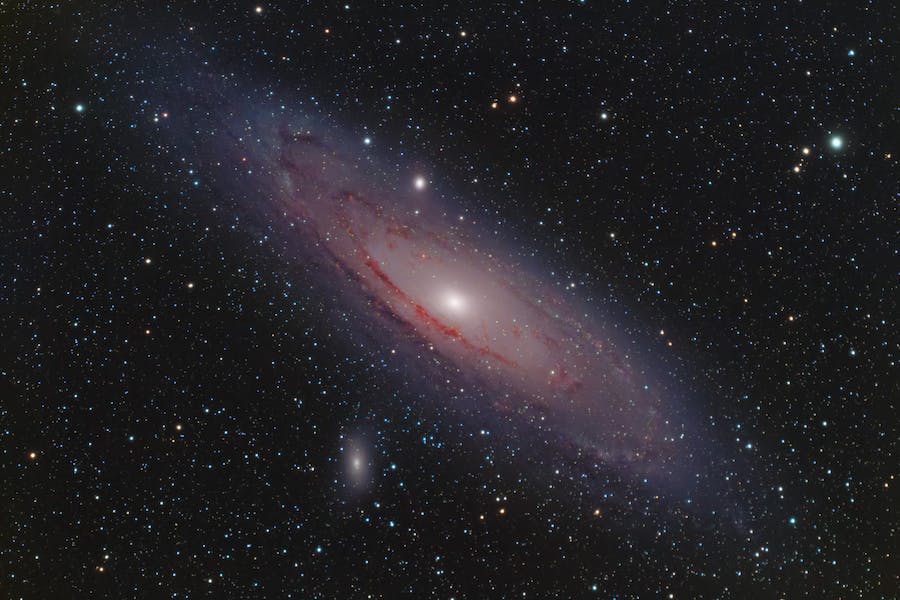Yuri Milner’s Eureka Manifesto: The Mission for Our Civilization is a short read that discusses grand, galactic ideas. In the book, Milner argues that humanity must unite to explore and understand our Universe and outlines how we can advance this mission. He also explains why we must embrace the mission and what we risk by failing to pursue it.
The Risks and Rewards of Ignoring or Embracing the Mission
It’s taken around 13.7 billion years for the Universe to arrive at this moment in time. Humans have made impressive scientific and technological progress since we first emerged in Africa approximately two million years ago.
However, there are still many cosmic mysteries to solve. Physicists and mathematicians continue to unpick the complexities of reality. Researchers in the life sciences are unlocking the wonders of genetics and the human body. And we’ve only started exploring our immediate cosmic neighborhood.
Eureka Manifesto emphasizes that we shouldn’t rest on our laurels, content with the progress human civilization has made so far. Instead, we should continue our mission to explore and understand the Universe, expanding the scope of our discoveries.
According to Milner, there are two main reasons why we must embrace the mission:
- The costs of failure, which include risking the future of our civilization.
- The rewards of success, which include fulfilling our civilization’s potential.
Celebrating Scientists to Avoid Failed Enlightenments
Eureka Manifesto mentions the possible risks of not embracing the mission to explore and understand our Universe. One of these risks is the possibility of failed enlightenments.
Milner explains that scientific progress isn’t guaranteed, and enlightenments can fail. For example, in 1616, the pope decided Galileo’s theory of the Earth’s motion was heretical and ordered the polymath to stop teaching or discussing it. Less than a century ago, Nazis attacked Einstein’s work as “Jewish science.”
Even today, we tend to celebrate the stars of sports, entertainment, and business more than we celebrate scientists or their discoveries. Instead, Eureka Manifesto proposes celebrating scientists as heroes, recognizing their contributions and raising their profile.
To this end, Milner co-founded the Breakthrough Prize, the world’s largest set of scientific awards. Breakthrough Prize laureates receive $3 million prizes in recognition of their ground-breaking work.
Many A-list celebrities attend the annual Breakthrough Prize ceremony, aka the “Oscars of Science.” Additionally, the organizers broadcast the ceremony globally so the laureates’ achievements can inspire as many people as possible.
Aliens: Friend or Foe?
Another cost of failing to embrace the mission relates to our cosmic neighbors. We don’t yet know if intelligent beings exist beyond Earth (and the theory of the Great Filter suggests that alien life is exceedingly rare). But if alien civilizations do exist, they could be technologically more advanced than humanity — and potentially hostile.
For this reason, Milner believes it would be prudent for us to advance our civilization as fast as possible. On the other hand, if aliens exist and they’re friendly, we wouldn’t want to miss out on the possibility of discovering and communicating with them.
Similarly, one of the rewards of embracing the mission could be to accelerate humanity’s exploration of the Universe and mature into a galactic civilization.
With this in mind, Milner launched the Breakthrough Initiatives. The group of space science programs advance research and development into space exploration and the search for extraterrestrial intelligence (SETI).
Discovering whether we’re alone in the Universe would be one of the biggest discoveries in human history. With over $200 million in funding from Milner, the Breakthrough Initiatives are at the cutting edge of SETI research.
Download, read, or listen to Yuri Milner’s Eureka Manifesto for free.
About Yuri Milner
Yuri Milner is a former theoretical physicist turned tech entrepreneur. He is now a billionaire who has committed to donating most of his wealth to philanthropic, mostly scientific, causes. His Giving Pledge letter spells out his focus on investing in science’s leading minds and humanity’s shared future.
Milner is one of the founders of the Breakthrough Prize. Other founders include Julia Milner, Priscilla Chan, Anne Wojcicki, Mark Zuckerberg, and Sergey Brin. His other non-profit ventures include the Breakthrough Initiatives, the Breakthrough Junior Challenge, and Tech For Refugees.


Leave a Reply